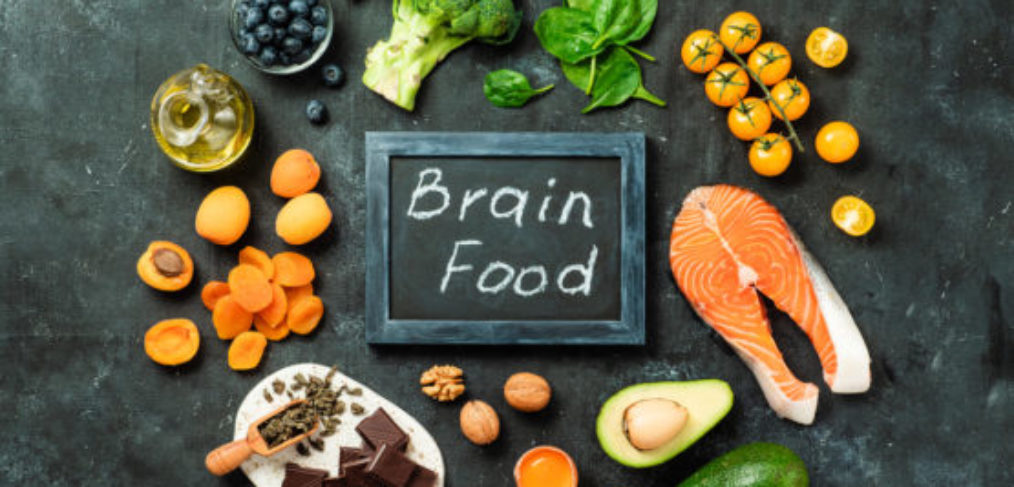BRAIN FOOD TO ELEVATE YOUR MOOD

What do you think of when you hear the phrase, “comfort food”?
Mac + cheese? Ice cream and cake? A bottle of wine (for yourself) and a wheel of imported brie?
By definition (1), comfort food is “food that provides consolation or a feeling of well-being, typically any with a high sugar or other carbohydrate content and associated with childhood or home cooking”.
Consuming energy-dense, high calorie, high fat, salt or sugar foods, such as ice cream, chocolate or french fries, may trigger the reward system in the human brain, which gives a distinctive pleasure or temporary sense of emotional elevation and relaxation.
When psychological conditions are present, people often use comfort food to treat themselves. Those with negative emotions tend to eat unhealthy food in an effort to experience the instant gratification that comes with it, even if only short-lived.[2]
So it makes sense that over the past year during the pandemic, some chose not only to respond to an internal drive to eat or drink things that provided an immediate feeling of consolation, but to do so in such a manner than they affected their bodies negatively (42% of Americans gained weight during Covid (3)) as well as their minds (prescriptions for anti-anxiety meds spiked 34% (4)).
Clearly, some of the foods that are being turned to for comfort is the least likely to benefit our brain’s health or our body’s.
And while changing what you choose to eat is only one important factor in whether or not you’ll gain weight or feel anxious or depressed, there’s is a lot you can do to lift your mood and improve mental health and it can be as simple as taking the step to increase your intake of plants and healthy foods. (5)
These findings (6) stem from an emerging field of research known as nutritional psychiatry, which looks at the relationship between diet and mental wellness. The idea that eating certain foods could promote brain health, much the way it can promote heart health, might seem like common sense. But historically, nutrition research has focused largely on how the foods we eat affect our physical health, rather than our mental health.
In a recent study (7), in which two groups, both who were already clinically diagnosed as being depressed, one who followed a Mediterranean Diet and the other who met regularly with a research assistant who provided social support but no dietary advice, found that depression scores improved to a far greater extent in the group that followed the healthy diet.
The diet benefited mental health; and people also saved money by eating the more nutritious foods, demonstrating that a healthy diet can be economical.
“Food can be empowering”, said Dr. Drew Ramsey in his book “EAT TO BEAT DEPRESSION AND ANXIETY” (8).
“We can’t control our genes, who our parents were, or if random acts of trauma or violence happen to us,” he said. “But we can control how we eat, and that gives people actionable things that they can do to take care of their brain health on a daily basis.”
Proactively choosing to take a long, hard look at the relationship we have with food is an excellent first step in understanding the why, and then moving on to action is an excellent way to make real change which has a profound impact not only on our own mental and physical health, but that of our families and those with whom we spend the most time.
(1) https://www.oed.com
(2) Heshmat, Shahram (28 September 2016). “5 Reasons Why We Crave Comfort Foods”. Psychology Today. Retrieved 5 September 2018.
(3) https://www.healthline.com/health-news/61-percent-of-americans-say-they-gained-weight-during-the-pandemic
(4) https://www.marketwatch.com/story/anti-anxiety-medication-prescriptions-have-spiked-34-during-the-coronavirus-pandemic-2020-04-16
(5) https://www.nytimes.com/2021/05/06/well/eat/mental-health-food.html
(6) https://www.nytimes.com/2019/03/28/well/eat/food-mood-depression-anxiety-nutrition-psychiatry.html
(7) https://pubmed.ncbi.nlm.nih.gov/28137247/
(8) http://www.harperwave.com/book/9780063031715/Eat-to-Beat-Depression-and-Anxiety-Drew-Ramsey/





